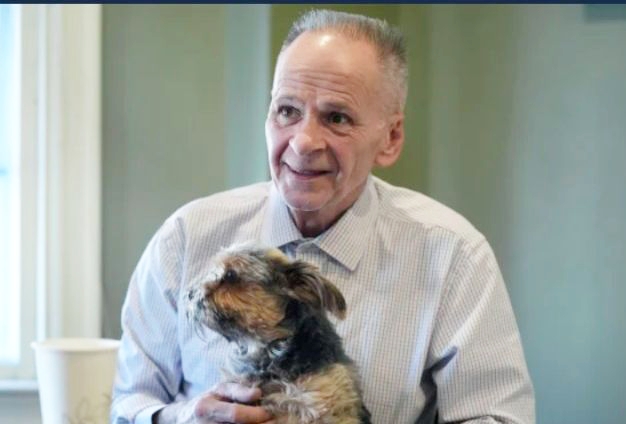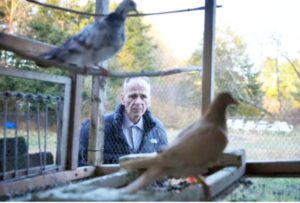“The most important thing is finding me innocent of the murder, expunging it from my record,” Michael Sullivan said.
Michael Sullivan spent nearly 30 years behind bars for a crime he always maintained he didn’t commit. During his imprisonment, he lost his mother and four siblings, his girlfriend moved on, and he suffered several violent attacks, leaving him physically scarred.
All of this stemmed from a conviction for a murder he did not commit.
Earlier this month, Sullivan, now 64, achieved a measure of justice when a Massachusetts jury ruled that he was innocent in the 1986 murder and robbery of Wilfred McGrath. The jury awarded him $13 million, despite state laws capping compensation for wrongful convictions at $1 million. They also concluded that a state police chemist had given false testimony during the trial, though this was not the decisive factor in his conviction.
“The most important thing is finding me innocent of the murder, expunging it from my record,” Sullivan said at the office of his lead attorney, Michael Heineman, in Framingham, Massachusetts. “The money, of course, will be very helpful to me.”
A spokesperson for the Massachusetts attorney general responded, “We respect the jury’s verdict and are evaluating whether an appeal is appropriate.”
Sullivan had been convicted of murder and armed robbery in 1987 after McGrath was found robbed, beaten, and dumped behind an abandoned supermarket. Authorities focused on Sullivan after learning that McGrath had been out the night before the murder with Sullivan’s sister, who later brought McGrath to the apartment she shared with Sullivan. Another suspect, Gary Grace, implicated Sullivan and had his own murder charges dropped. Grace testified that Sullivan was wearing a purple jacket on the night of the murder. A state police chemist testified that blood and a hair consistent with McGrath’s were found on the jacket.
Sullivan was convicted and sentenced to life in prison, while Grace pleaded guilty to being an accessory after the fact and received a six-year sentence. Emil Petrla, who attacked McGrath and helped dispose of the body, pleaded guilty to second-degree murder and received a life sentence with parole eligibility but died in prison.
“I couldn’t believe I was convicted of murder,” Sullivan recalled, adding that the prosecution emphasized the purple jacket throughout their case. “My mother was crying in the courtroom, my brother was crying. I was crying. It was very hard for me and my family.”
Prison life was a nightmare for Sullivan. He endured brutal assaults, including one where his nose was nearly bitten off and another that almost cost him an ear. As a lifer, he was denied access to prison education programs that could have helped him build skills.
“It’s very hard on a person, especially when you know you’re innocent,” Sullivan said. “And prison is a bad life, you know. Prison is a tough life.”
His attorney later secured DNA testing — unavailable at the time of the trial — that found no blood on the jacket. The testing also revealed that the substances on the coat didn’t contain McGrath’s DNA, and it was inconclusive whether the hair found on the jacket belonged to McGrath.
Dana Curhan, a Boston attorney who represented Sullivan from 1992 to 2014 and pushed for DNA testing, said Sullivan had always denied that McGrath’s blood was on the jacket. Curhan was surprised to find there was no blood at all, undermining the prosecutor’s claim that Sullivan had beaten McGrath into a “bloody pulp.”
“At the prosecutor’s closing, he essentially said, ‘Hey, if he wasn’t the one who did it, why did they find blood on both of the cuffs of the jacket?’” Curhan recalled. “Now, we don’t have any blood nor a DNA match. You would expect someone doing what he was alleged to have done to be covered in blood. There is no blood. That really was the case.”
A new trial was ordered in 2012, and Sullivan was released in 2013. Initially, he spent six months under home confinement and wore an electronic monitoring bracelet for years.
“When I walked out the front door, I was in an emotional state,” Sullivan said.
In 2014, the state’s highest court upheld the decision to grant him a new trial. By 2019, prosecutors declined to retry the case, citing the deaths of some witnesses and fading memories of others.
After his release, Sullivan struggled to adjust to a world that had changed dramatically. Before his arrest, he worked at a peanut factory and planned to become a truck driver. Instead, he emerged from prison with no skills or job prospects. He still cannot use a computer and now helps his sister with odd jobs. His long-term girlfriend, who visited him for a decade, eventually moved on.
“I’m still really not adjusted to the outside world,” Sullivan said, noting that he spends most of his time with his Yorkshire terrier, Buddy, and the pigeons he keeps at his sister’s house. “It’s hard for me. I don’t go nowhere. I’m scared all the time … I’m pretty much a loner.”
Sullivan’s sister, Donna Faria, said their family always believed in his innocence and supported him through his incarceration. However, she laments the life experiences Sullivan missed out on, including marriage and having children.
“If he didn’t have me, my brother would have been walking the streets like a lot of the homeless people,” Faria said. “It’s almost like he doesn’t trust people. If he’s around family, he feels safe. If not, he doesn’t.”
These days, Sullivan spends his time at Faria’s home in Billerica, Massachusetts, doing her family’s laundry as he once did for inmates in prison. Despite the $13 million award, Sullivan doesn’t expect his life to change significantly.
He plans to buy a truck but wants to save most of the money to support his nieces and nephews when they turn 21. Sullivan hasn’t received therapy for the trauma he endured, but his attorney intends to request counseling and educational services as part of the judgment.
“They’ll have money. That will make me very happy,” Sullivan said. “The most important thing is my nieces and nephews — taking care of them.”


